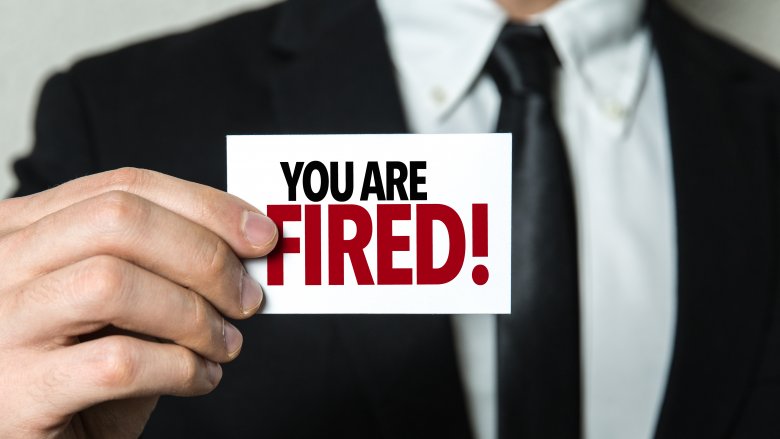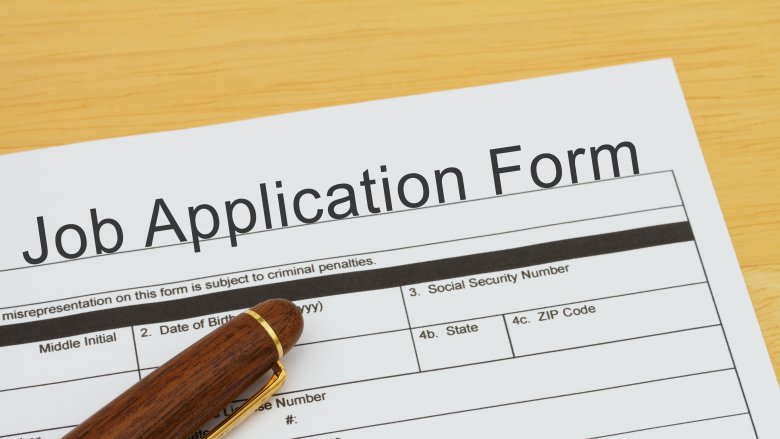Best Ways To Cope When You Are Fired From Your Job
In the 40 years I have been a social worker, I have worked with people in an assortment of stressful situations. People in the psychological community tend to use an instrument called the Homes-Rahe Life Stress Inventory as a marker for ranking life events in terms of how stressful they are in our lives. Getting fired from your job comes up as number eight on this list. Yes, it really does make the top 10. Hearing the words "you are fired" does not feel good regardless of the circumstances. The question is once it happens, what do you do next? There are some dos and don'ts to consider that will help you do a better job of surviving this difficult situation.
Don't react with anger
There is always a temptation to let loose in a fit of anger and scream or even strike the person who fires you. It is hard to maintain control of your emotions at this moment, but it is better to resist this temptation. It is almost impossible to not personalize it when you learn you are fired. Try to remain as calm as you possibly can. If you don't understand why you are being fired, calmly ask the reason for your termination. Hearing an explanation gives you time to absorb what is happening. You need information to help you understand and process why this has happened. You never know if you will come in contact with that person again in a professional circumstance. Try to remain as civil as you can. Hearing their reasons for firing you can can give you important information you can use to help you better understand what behavior you need to change.
Wait to sign termination paperwork
There are lots of ways to protect yourself. Don't just walk out the door without knowing exactly what benefits and compensation you are entitled to get. This may be your only opportunity to find out what you are owed and how you can get it. Who do you need to talk to in order to get accurate information? Is there a human resources department? What type of compensation are you entitled to get? How will this affect your health insurance benefits? Are you eligible for unemployment? If so, for how long and how much money are you eligible to receive? Don't sign any paperwork immediately. Tell your boss you want to consult with your lawyer. You want to make sure you are not signing paperwork you will regret that may compromise your future benefit package. This is a great way for you to assume some control of this situation. It will help you feel more in control.
Take a moment to calm yourself before you react
When you are fired you are flooded with lots of emotions, including anger, shock, bitterness, sadness, shame, fear, guilt. Maybe even relief that you don't work there anymore. Sometimes people tend to blame themselves. Take a slow, long, deep breath. You can't change what you have done in the past, whether it was good work or bad. Perhaps you did not meet the job performance standards of your workplace. Maybe you did a great job but had a boss that could not see it for some reason. Maybe your company has been bought by someone who is putting his own people in place. Getting angry at yourself or someone else is not the right thing to do. It will only hinder your ability to bounce back and take the next step. Tell yourself this may feel like a crisis now but it is only temporary. You will get through it.
Find a colleague to write you a recommendation letter
Getting clarification on the reason you were let go is important for several reasons. This information will be useful when you go to future job interviews. Also, this information can be useful as you decide about your future career path. You will need to consider how you are going to respond to the question about why you left your previous job. Are you being laid off or fired? If you are being laid off, your response might be: "I was laid off from a job. So were all of my colleagues because we were bought by another company. It had nothing to do with our job performance." If your release is not related to your job performance, maybe you can get a recommendation letter. Identify someone in the office who you have worked with who would be a good candidate to write one for you. That will come in handy as you start to make a new career move.
Try to negotiate when you have to leave your job
Talk with your employer about how quickly you have to leave. What is the timetable? Are there projects you have been working on that you would like to see to completion? Are there clients or colleagues you need to speak with to conclude unfinished business? Do you feel you just need some more time before you leave permanently? Find out if you have any room to negotiate the terms of leaving your job. Ask how your employer will be describing the reason you are leaving. Does it match your perceptions, or do you feel it is unfair? A lot of this will have to do with the reason your employer identifies you have to go. It is helpful if you feel you have some control in terms of how and when you leave. Having some control feels like it can soften the blow, and you are more involved in managing the parameters of your departure.
Resist the urge to say bad things about the place
Don't publicly bad mouth your boss or your company. You may want to jump on social media and just negatively blast the people you believe are responsible for your firing. You might be tempted to want to make a scene in your workplace. People often ask colleagues at work to take sides when someone has been fired. Any public display on your part where you trash talk people you work with can come back to haunt you in a negative way at some future date. Maybe a potential employer has a relationship with your previous boss and hears about your negative, public reaction. Perhaps a person who is a potential colleague sees what you have posted on the Internet about what happened and disapproves. You need to be cautious about how you respond in a public forum. It can reflect on you in ways you can't anticipate.
Don't forget about your work relationships
It is important that to have someone to talk to about how you feel about being fired. Find a person you trust that you can candidly speak to and express your feelings and fears about the future. There may be workplace friends that you want to schedule some time with to talk to or say a proper goodbye. You also might want to make plans to stay in touch in the future with friends you made at work. You spent a lot of time with these people, and they won't be a part of your day to day life in the same way. Sometimes people at work become like family. The loss of a job can also mean the loss of important and meaningful relationships. That makes it even more difficult to cope with — make no mistake about it. Just as the Homes-Rahe stress scale indicates, losing a job is a traumatic life crisis on many levels.
Make a list of your job skill set
You need to give yourself some time to regroup, self assess, and re-evaluate your next step. Was this job the right one for you? What did you like about it? What didn't you like about your work? This may be a good time to move your career in an exciting new direction and to try doing work you have been thinking about for a long time. You can view your job loss as a new opportunity to do something you have never tried before. Some people use getting fired as an opportunity to consult a job counselor to find a work situation that is a better fit. Head hunters or placement coordinators can help match you with companies looking for people with your talents. Make a list of your strengths and skills. Many times we have skill sets that can be applicable in a variety of work settings, but we are unaware of our possibilities. You may need help in examining this further and applying it to your job hunt.
Instead of panicking, create a plan of action
Just hearing the words "you're fired" has a lot of negative repercussions. Take some time to do things you enjoy with people you like, and allow yourself time to deal with the feelings that evolve from leaving your job. But from a practical standpoint, you need to examine your financial situation to see how long you can afford to stay unemployed. You may need to take a temporary job in the interim to meet financial obligations. Try not to panic and quickly take a job that might not be right for you. People often make that mistake and regret it.
You can also choose to view this as a new opportunity to move towards a new career. It can be a time doing work you have wanted to do but have been afraid to pursue. If you know you are a hard worker, hold on to that. Take yourself and your skills and all you have to offer to a new and exciting place. Create a plan of action and commit yourself to this plan. Then move forward rather than focusing on the past job loss. It will help you get ahead and meet your new career goals.









